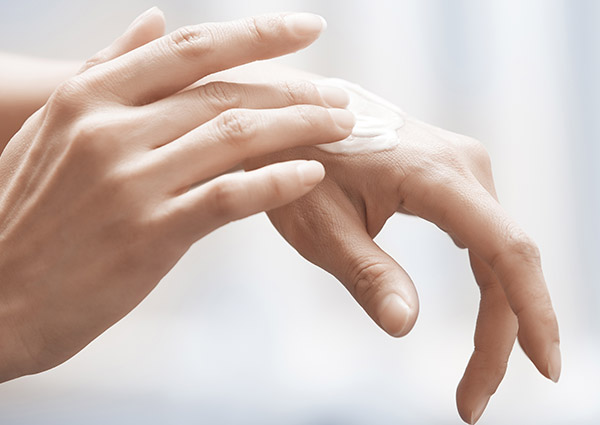
What’s the Link Between Allergies and Eczema?
Eczema is a common, non-contagious skin condition that affects 10 to 20% of children. It’s part of a cycle called the “atopic march,” where a person is first affected by eczema, then diagnosed with a food allergy, followed by allergic rhinitis and finally, asthma. While not everyone follows the progression, it happens frequently.
What is Eczema?
Eczema is an inflammatory condition resulting in red, scaly and sometimes oozing, itchy skin rashes. It may be limited to certain parts of the body, and it’s intermittent. If children develop it before age two, they are three times as likely to develop asthma and allergic rhinitis than other children within the following five years. However, by the teen years, more than half of young people stop having eczema flare-ups.
It’s believed that “leaky” skin barriers reduce the skin’s ability to block allergens as well as allowing the skin’s protective moisture to escape. There’s a strong genetic link; if a mother has allergies, there’s a 1 in 3 chance her child will develop eczema.
While they don’t cause eczema, those affected by allergies and/or asthma are at higher risk for the skin condition.
Managing Allergies and Eczema
The first task is to determine triggers, through journaling and allergy testing. Once you’ve discovered what your triggers are for allergies and eczema, you can make a plan to avoid them.
Some general tips include:
- Get rid of carpets, use bedding that’s certified healthy for asthma and allergy sufferers and wash bedding weekly in hot, soapy water and dry in a dryer.
- Remove clothing worn outdoors so you don’t track the allergens in with you, and shower before bed.
- Keep humidity below 50%, using a dehumidifier if needed, but don’t allow the air to become too dry, either.
- Avoid tobacco and other types of smoke.
- Pets are often sources of problems for allergy and eczema sufferers. Keep pets out of the bedroom, at minimum.
- Limit exposure to cold, dry air.
Treating Allergies and Eczema
You can treat allergies with over-the-counter and prescription oral medications, nasal sprays and sometimes with immunotherapy or allergy shots. Common eczema treatments include creams and lotions, topical steroid creams and high-quality moisturizers that seal in moisture. Antihistamines and itch creams are also helpful. Newer biological medications show promise for patients who don’t respond to typical treatments.





